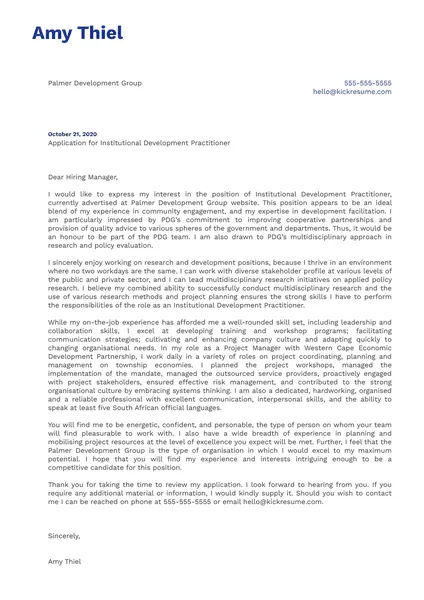What is a Cover Letter [Basics]
A cover letter is a crucial document that accompanies your resume when you apply for a job. It serves as your introduction to a potential employer, providing context to your qualifications and expressing your interest in the specific position. Unlike a resume, which provides a factual overview of your skills and experience, a cover letter allows you to showcase your personality, communication skills, and understanding of the company and the role. It is your opportunity to make a strong first impression and persuade the hiring manager to read your resume with interest. Think of it as a personal sales pitch, highlighting why you are the ideal candidate and what value you can bring to the organization. Cover letters are not merely redundant summaries of your resume; instead, they should expand on your key achievements and explain how your skills align with the job requirements.
Importance of Cover Letters for Business
In the competitive world of business, a well-crafted cover letter can significantly increase your chances of landing an interview. It allows you to demonstrate your enthusiasm for the position and the company, setting you apart from other applicants. A cover letter showcases your communication skills, which are highly valued in most business roles. It allows you to highlight specific achievements and skills that are most relevant to the job description, making your application more targeted and compelling. Additionally, cover letters provide an opportunity to address any potential concerns the employer might have about your application, such as a gap in your employment history or a career change. They show that you have done your research about the company and understand its values, goals, and challenges. Cover letters are also a reflection of your professionalism and attention to detail, which are essential qualities in any business setting.
Types of Cover Letter Samples for Business
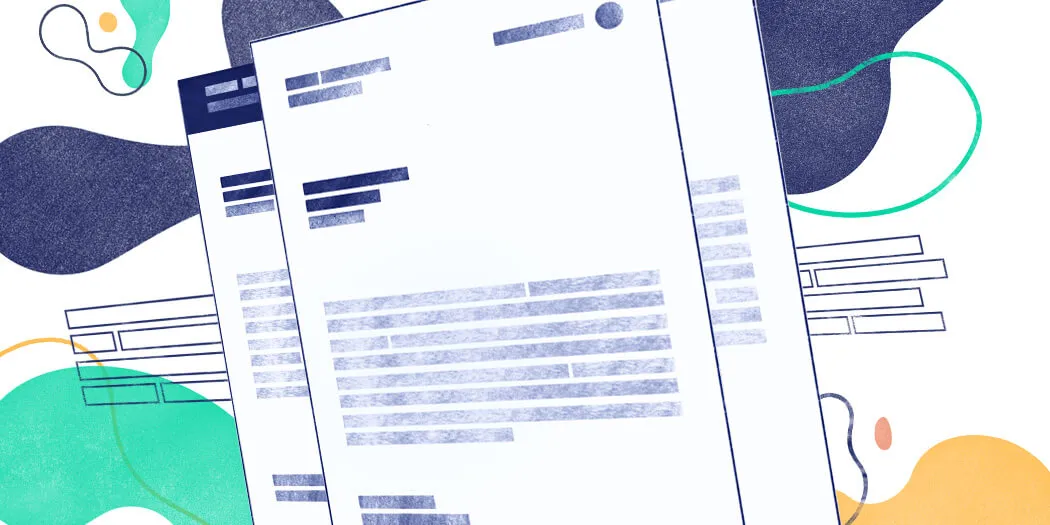
There are several types of cover letters, each designed for different situations and purposes. The most common types include the application cover letter, which responds to a specific job posting, and the prospecting cover letter, also known as an inquiry letter, which expresses interest in a company even when there isn’t a listed opening. Other types include the networking cover letter, which you send after meeting someone at a networking event, and the referral cover letter, which is sent when you’ve been referred by an employee. Understanding these different types and their specific formats can help you tailor your letter to the situation. The application cover letter is often the most straightforward, focusing on how your skills match the job requirements. Prospecting letters require a more proactive approach, demonstrating your research on the company and explaining why you want to work there. Networking letters should reference your conversation and reiterate your interest. Referral letters can be more personalized.
Cover Letter Samples [Entry-Level Business Positions]
For entry-level business positions, cover letters should focus on showcasing your transferable skills, academic achievements, and any relevant internships or volunteer experiences. Highlight your eagerness to learn and contribute to the company. Since you may lack extensive professional experience, emphasize your soft skills, such as communication, teamwork, and problem-solving abilities. Demonstrate your understanding of the company’s mission and how your skills can help achieve its goals. Include any projects or coursework that demonstrate your abilities. When writing an entry-level cover letter, be enthusiastic and express your willingness to take on new challenges. Make sure to tailor your cover letter to each specific job application by carefully reviewing the job description and highlighting the most relevant skills and experiences. Consider including a brief statement about your career aspirations and how the position aligns with your goals.
Cover Letter Samples [Mid-Career Business Professionals]
Mid-career professionals should use their cover letters to showcase their experience, accomplishments, and leadership skills. Focus on quantifiable achievements and provide specific examples of how you’ve contributed to previous companies’ success. Highlight any promotions, awards, or recognitions you’ve received. When writing a mid-career cover letter, emphasize the value you can bring to the new company by demonstrating your strategic thinking and ability to drive results. Showcase your ability to manage projects, lead teams, and solve complex business problems. Tailor your letter to each job by highlighting the skills and experience most relevant to the role. Avoid listing every job you have ever held and instead focus on accomplishments that match the job description. Be sure to demonstrate a strong understanding of the company’s industry and the challenges it faces. Use your experience to show that you can add significant value from day one.
Cover Letter Samples [Executive-Level Business Roles]
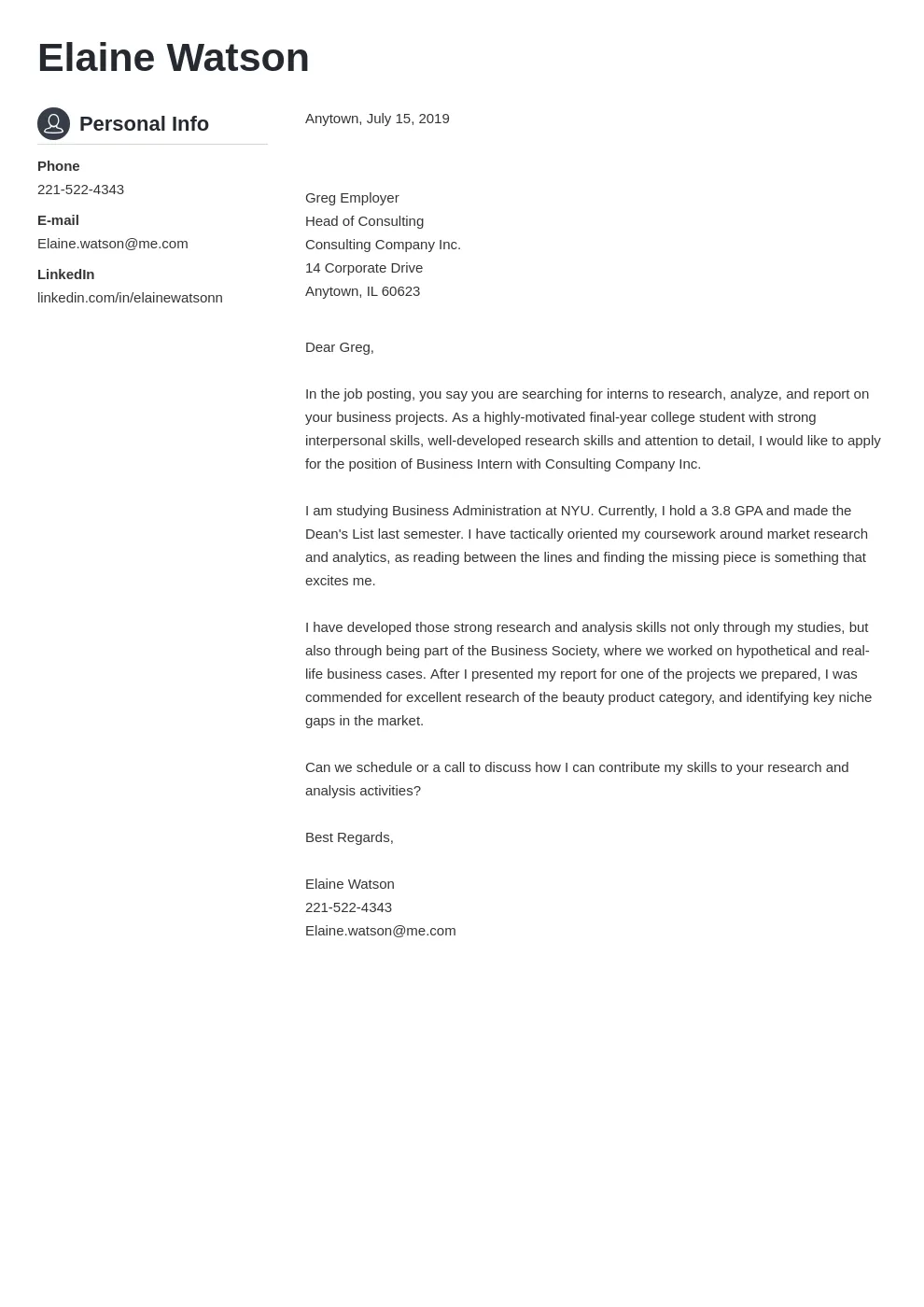
Executive-level cover letters should be concise, impactful, and highlight your leadership experience, strategic vision, and ability to drive organizational success. Focus on your ability to make strategic decisions, manage high-performing teams, and deliver strong financial results. Quantify your achievements with specific data and metrics. When writing an executive-level cover letter, demonstrate your understanding of the company’s industry and competitive landscape. Show how your leadership style aligns with the company’s culture and values. Emphasize your ability to build relationships with key stakeholders and drive business growth. Your cover letter should be a testament to your ability to lead and inspire, positioning you as a transformational leader who can take the company to the next level. The cover letter should immediately and clearly articulate your vision for the future of the company.
Key Elements of a Strong Cover Letter
A strong cover letter includes several key elements. Start with a compelling opening paragraph that captures the reader’s attention and clearly states your interest in the position. The body of the letter should highlight your most relevant skills and experience, providing specific examples of your accomplishments. Tailor your letter to the specific job by referencing the job description and highlighting the skills and experiences most relevant to the role. The letter should also demonstrate your understanding of the company’s mission and how your skills can help achieve its goals. Conclude with a strong closing paragraph that reiterates your interest in the position and expresses your eagerness to learn more. Finally, proofread your letter carefully for any errors in grammar, spelling, or punctuation. Always include your contact information and address the hiring manager by name if possible.
Formatting Tips for Business Cover Letters
Proper formatting is crucial for making your cover letter easy to read and visually appealing. Use a professional font such as Times New Roman, Arial, or Calibri, with a font size between 10 and 12 points. Maintain consistent formatting throughout the letter. Use single-spacing within paragraphs and double-spacing between paragraphs. Use standard one-inch margins on all sides. Break up large blocks of text with bullet points or short paragraphs to improve readability. Choose a simple, professional layout that is easy on the eyes. Be sure to align your text to the left, avoiding full justification, which can create uneven spacing between words. Always proofread your cover letter before submitting to ensure it is free of grammatical errors and typos. The overall goal is to make your cover letter easy to read and visually appealing, showcasing your professionalism and attention to detail.
Common Mistakes to Avoid in Cover Letters
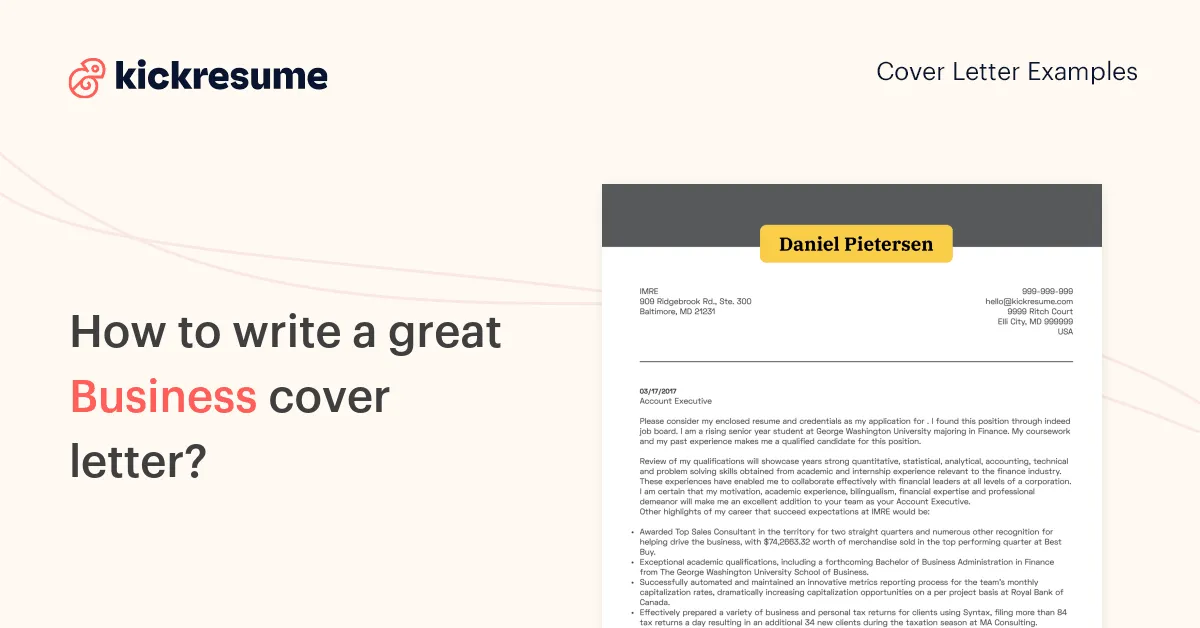
Several common mistakes can undermine your cover letter. Avoid using generic or impersonal language. Tailor your cover letter to each job application. Do not simply repeat your resume; instead, expand on your key accomplishments and explain how your skills match the job requirements. Avoid grammatical errors, spelling mistakes, and typos. Do not exceed one page in length. Avoid using jargon or overly technical language that the hiring manager may not understand. Do not focus solely on what you want; instead, emphasize what you can offer the company. Avoid including irrelevant information or personal details. Avoid negative language or criticizing previous employers. Make sure your cover letter is free of any formatting inconsistencies. The goal is to present a polished, professional document that makes a positive impression on the hiring manager.
Tailoring Cover Letters to Specific Business Needs
To maximize the impact of your cover letter, you must tailor it to the specific business needs of the company and the job. Research the company and the role, and identify the key skills and experiences that are most relevant to the position. Customize your cover letter to highlight those specific skills and experiences. Use keywords from the job description throughout your letter. Demonstrate your understanding of the company’s mission, values, and goals. Explain how your skills and experiences align with the company’s needs and how you can contribute to its success. Show that you have taken the time to understand the company’s business and its challenges. Adapt the tone and style of your letter to match the company culture. Proofread and edit your cover letter to ensure it is free of any errors. Tailoring your cover letter is a key to showing the hiring manager that you are a good fit.
Cover Letter Samples [Industry-Specific Examples]
Cover letter samples vary by industry. Tailoring your cover letter to the industry can significantly improve your chances of success. In the finance industry, emphasize analytical skills, financial modeling expertise, and experience with industry-specific software. For marketing roles, highlight your creative skills, experience with marketing campaigns, and knowledge of digital marketing tools. In the technology sector, showcase your technical skills, experience with relevant technologies, and ability to work in a fast-paced environment. For healthcare positions, highlight your experience with patient care, knowledge of medical terminology, and understanding of healthcare regulations. For each industry, tailor your cover letter to the specific requirements. When you include the details of your experience you add more value to your letter. Consider including any industry-specific certifications or training. Tailoring your cover letter to each industry shows that you understand its nuances and can communicate your value effectively.
Writing Tips for Cover Letters
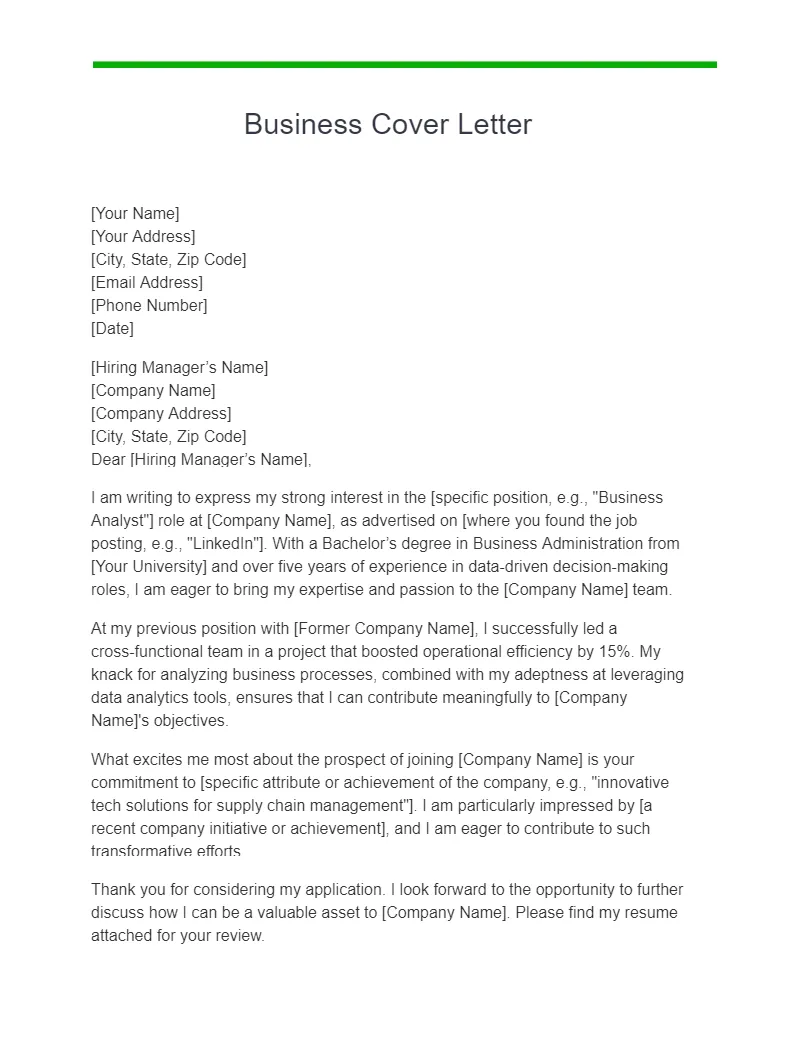
There are several writing tips for creating effective cover letters. Start with a strong opening paragraph that grabs the reader’s attention. Tailor your letter to the specific job and company. Use action verbs to describe your accomplishments and responsibilities. Quantify your achievements whenever possible by using data and metrics. Highlight your most relevant skills and experiences. Show, don’t just tell, the hiring manager why you are the right candidate. Demonstrate your enthusiasm for the position and the company. Proofread your letter carefully for any errors in grammar, spelling, or punctuation. Maintain a professional tone and style. Keep your letter concise and focused. Write in a clear, concise, and professional style. Ensure your letter flows well and is easy to read. Seek feedback from trusted sources.
Reviewing and Proofreading Cover Letters
Reviewing and proofreading are critical steps in the cover letter writing process. Always review your cover letter for clarity, conciseness, and accuracy. Check for any grammatical errors, spelling mistakes, or typos. Ensure that your cover letter is tailored to the specific job and company. Read your cover letter aloud to check the flow and readability. Seek feedback from a friend, colleague, or career counselor. Pay close attention to the opening and closing paragraphs. Make sure your contact information is correct. Review the formatting to ensure consistency. Proofread your cover letter multiple times. Make sure that the letter clearly communicates your value to the potential employer. Ensure that the letter is free of any embarrassing errors.
Cover Letter Samples [How To Get Started]
Getting started with cover letter writing can seem daunting, but following these steps can make it easier. Begin by researching the company and the job description. Identify the key requirements and qualifications for the role. Review cover letter samples for inspiration. Create an outline of your cover letter, including your opening paragraph, body paragraphs, and closing paragraph. Draft your cover letter, focusing on your most relevant skills and experiences. Tailor your letter to the specific job and company. Quantify your accomplishments with data and metrics. Proofread and edit your cover letter carefully. Seek feedback from others. Save your cover letter in a professional format. By following these steps, you can create a compelling cover letter that will help you land your dream job. Remember to be confident, enthusiastic, and professional in your writing.
